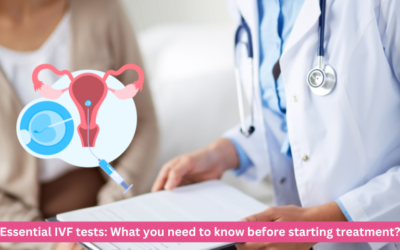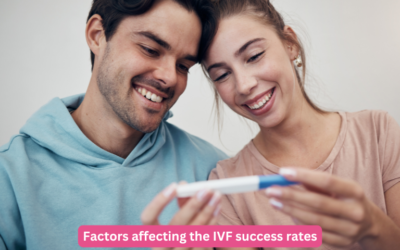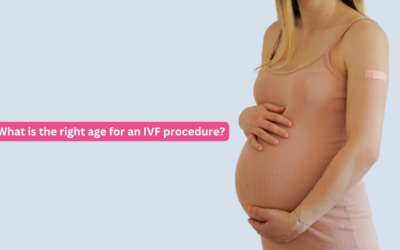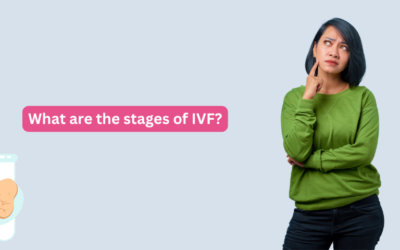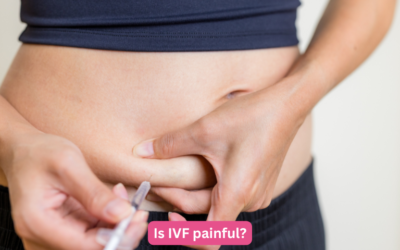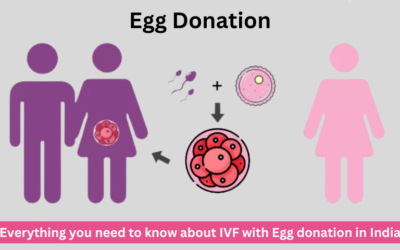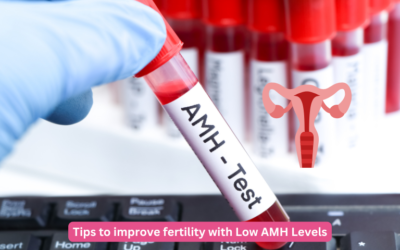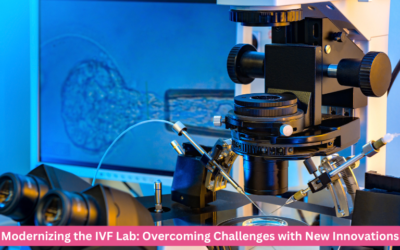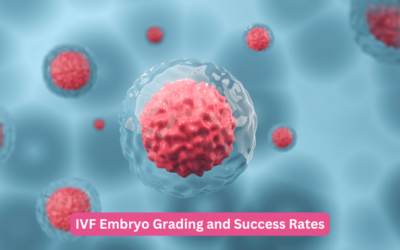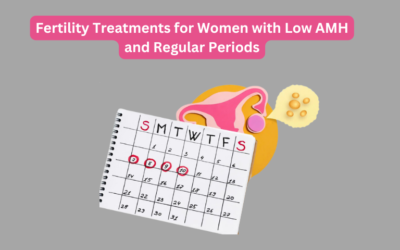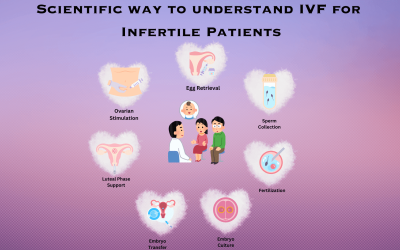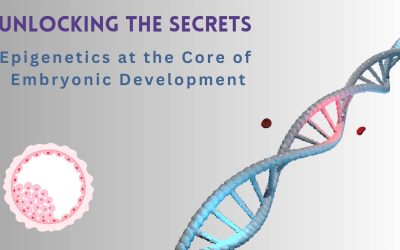At Shukan Hospital & IVF Centre, we are at the forefront of advanced fertility treatments, striving to provide our patients with the best possible chances of success. One of the revolutionary technologies we offer is Preimplantation Genetic Testing (PGT). This technique is transforming the landscape of In Vitro Fertilization (IVF) by offering a higher level of precision in embryo selection. In this blog, we will delve into the role of PGT in IVF, exploring its benefits, limitations, and the overall impact on the fertility journey.
What is Preimplantation Genetic Testing (PGT)?
Preimplantation Genetic Testing (PGT) involves analyzing embryos created through IVF for specific genetic abnormalities before they are implanted into the uterus. The primary goal of PGT is to identify embryos with chromosomal or genetic issues that could affect pregnancy outcomes. PGT is divided into three main categories:
PGT-A (Preimplantation Genetic Testing for Aneuploidy):
1. Purpose: Detects abnormalities in the number of chromosomes in the embryo.
2. Significance: Chromosomal abnormalities, such as down syndrome or other aneuploidies, can lead to implantation failure, miscarriage, or developmental disorders. PGT-A helps in identifying embryos with the correct number of chromosomes, improving the likelihood of a successful pregnancy.
PGT-M (Preimplantation Genetic Testing for Monogenic Disorders):
1. Purpose: Screens for specific genetic mutations associated with single-gene disorders.
2. Significance: For couples with known genetic conditions, such as cystic fibrosis or Huntington’s disease, PGT-M ensures that embryos do not carry these mutations, thus reducing the risk of passing on inherited diseases.
PGT-SR (Preimplantation Genetic Testing for Structural Re-arrangements):
1. Purpose: Identifies structural abnormalities in chromosomes, such as translocations or inversions.
2. Significance: Chromosomal rearrangements can cause recurrent miscarriages or infertility. PGT-SR helps in selecting embryos without these structural abnormalities, potentially improving pregnancy outcomes.
Benefits of PGT in IVF
- Increased chance of successful pregnancy:PGT significantly enhances the success rates of IVF by ensuring that only embryos with a normal chromosomal structure are selected for implantation. This reduces the likelihood of implantation failure and miscarriage. Studies have shown that PGT can increase the chances of live birth by selecting embryos that are more likely to result in a healthy pregnancy.
- Reduced risk of genetic disorders:For couples who are carriers of genetic disorders, PGT provides peace of mind by ensuring that embryos free from these genetic conditions are chosen. This is particularly crucial for families with a history of genetic diseases, as it helps prevent the transmission of these conditions to the next generation.
- Enhanced IVF efficiency:By focusing on the most viable embryos, PGT can potentially reduce the number of IVF cycles required. This not only saves time but also reduces the emotional and financial burden on patients. Fewer cycles mean less medication and fewer procedures, leading to a more streamlined and cost-effective IVF process.
- Customized fertility treatment:
PGT allows for a highly personalized approach to fertility treatment. With detailed genetic information, your fertility specialist can provide tailored recommendations, optimizing your IVF protocol based on the specific genetic profile of your embryos.
Considerations and Limitations
Cost:
The additional expense of PGT is an important consideration. PGT involves extra testing and laboratory work, which can increase the overall cost of IVF. It’s essential to discuss these costs with your fertility specialist and explore financial options or insurance coverage that may be available.
Emotional impact:
The decision-making process involved in PGT can be emotionally challenging. Receiving genetic testing results and making decisions based on these results can be stressful. It’s important to have a supportive team and counseling options available to help you navigate these emotions.
Technical and accuracy issues:
While PGT is a highly accurate tool, it is not without its limitations. There is a small risk of false positives or false negatives, which can affect the selection of embryos. Your fertility specialist will discuss the implications of these risks and the steps taken to ensure the highest accuracy.
How PGT is performed ?
The process of PGT involves several key steps:
- Embryo culture: Eggs are retrieved from the ovaries and fertilized with sperm in the laboratory to create embryos.
- Embryo biopsy: A few cells are carefully removed from each embryo at the blastocyst stage (usually around day 5 or 6 of development).
- Genetic analysis: The biopsied cells are analyzed in a specialized laboratory to check for chromosomal abnormalities or specific genetic mutations.
- Embryo selection: Based on the genetic analysis, embryos that are free of abnormalities are selected for transfer into the uterus.
- Embryo transfer: The selected embryos are transferred to the uterus with the hope of achieving a successful pregnancy.
At Shukan Hospital & IVF Centre, our team is committed to providing a compassionate and comprehensive approach throughout the PGT process, ensuring that you receive the highest quality care and support.
Conclusion
Preimplantation Genetic Testing (PGT) is a groundbreaking advancement in the field of IVF, offering significant benefits such as increased pregnancy success rates and a reduced risk of genetic disorders. By providing detailed genetic information about embryos, PGT allows for more informed decisions and a higher likelihood of a healthy pregnancy. At Shukan Hospital & IVF Centre, we are dedicated to leveraging this technology to optimize your fertility journey and achieve the best possible outcomes.
If you’re considering PGT or have any questions about how it can enhance your IVF experience, don’t hesitate to reach out to us. Our expert team is here to provide personalized guidance and support tailored to your unique needs. Contact us to schedule a consultation or learn more about how PGT can make a difference in your path to parenthood.
Author bio
Dr. Ajay Prajapati
He is a highly respected specialist in the fields of infertility, IVF, and fetal medicine. With over a decade of hands-on experience, he has successfully treated numerous patients facing complex fertility and pregnancy-related challenges. His expertise in advanced laparoscopy has made him a trusted name for minimally invasive surgeries, providing patients with cutting-edge treatments and compassionate care.
As a FOGSI-certified sonologist, he ensures accurate and detailed assessments during pregnancies, particularly in high-risk cases. His commitment to excellence is reflected in the numerous successful outcomes and the trust he has earned from patients across Gujarat and beyond.
FAqs
How does PGT affect the overall success rates of IVF compared to traditional methods?
Preimplantation Genetic Testing (PGT) can improve IVF success rates by identifying embryos with the correct number of chromosomes, reducing the likelihood of implantation failure, miscarriage, or genetic disorders. It allows for the selection of the healthiest embryos, which can lead to higher pregnancy and live birth rates, especially in older women or those with a history of failed IVF cycles.
Can PGT be used in cases of recurrent pregnancy loss or unexplained infertility?
Yes, PGT can be beneficial in cases of recurrent pregnancy loss or unexplained infertility. It helps identify chromosomal abnormalities that could be causing miscarriages or preventing pregnancy, thus increasing the chances of a successful pregnancy by transferring only genetically normal embryos.
Are there any specific genetic conditions that PGT cannot detect?
PGT is designed to detect chromosomal abnormalities and specific genetic disorders, but it cannot detect all genetic conditions. It may miss conditions caused by mutations not included in the testing panel or conditions that are complex and not solely caused by a single gene mutation or chromosomal abnormality.
What is the difference between PGT and genetic screening tests done during pregnancy?
PGT is performed on embryos before implantation during IVF, allowing for the selection of genetically healthy embryos for transfer. In contrast, genetic screening tests during pregnancy, such as amniocentesis or non-invasive prenatal testing (NIPT), are conducted after the pregnancy is established to check for genetic abnormalities in the fetus.
How does the age of the woman affect the accuracy of PGT?
The accuracy of PGT is generally high, but it may be influenced by maternal age. Older women are more likely to produce embryos with chromosomal abnormalities, which makes PGT especially valuable. However, older age can sometimes increase the complexity of obtaining viable embryos for testing, and the embryo’s overall quality might affect the accuracy of the results.
What should a couple expect during the embryo biopsy procedure?
During the embryo biopsy, a small number of cells are removed from the developing embryo, typically on day five or six after fertilization. This process is minimally invasive and does not harm the remaining cells, allowing the embryo to continue developing. The biopsied cells are sent for genetic testing, and the results help determine which embryos are healthiest for transfer.
Can PGT guarantee a healthy baby?
PGT can significantly reduce the risk of genetic abnormalities but does not guarantee a completely healthy baby. Other factors, such as environmental influences and random mutations that occur later in pregnancy, can still affect the baby’s health. However, PGT does improve the chances of a successful pregnancy and reduces the risk of certain genetic conditions.
How long does it take to get results from PGT, and how does it affect the IVF timeline?
PGT results typically take around one to two weeks. This can delay the IVF timeline because embryos may need to be frozen after the biopsy while awaiting results. Once the results are available, only healthy embryos are selected for transfer in a subsequent IVF cycle.
What are the potential risks to the embryos during the biopsy process?
While embryo biopsy is generally considered safe, there is a small risk of damage to the embryo during the process. The risk of harm is minimal when performed by experienced professionals, and most embryos continue to develop normally after the biopsy.
Are there any long-term studies on the outcomes of children born after PGT?
Research and long-term studies indicate that children born after PGT do not show higher risks of health problems compared to children born through traditional IVF or naturally. However, as PGT is a relatively recent technology, ongoing research continues to monitor long-term outcomes. Current data suggests that the procedure is safe and effective.
Blogs related to Advance IVF Treatments
Essential IVF tests: What you need to know before starting treatment?
In-vitro fertilization (IVF) offers hope to many couples and individuals dreaming of parenthood. However, starting IVF requires a series of...
Factors affecting the IVF success rates
In vitro fertilization (IVF) has brought hope to millions of couples struggling with infertility. However, understanding the factors that influence...
What is the right age for an IVF procedure?
Navigating the journey to parenthood can be a complex and emotional experience, especially when considering assisted reproductive...
What are the stages of IVF? A step-by-step guide by Shukan Hospital & IVF Centre
In-vitro fertilization (IVF) has opened new pathways to parenthood for those facing fertility challenges. Whether you’re considering IVF or are in...
IVF and Multiple pregnancies: Understanding the risks and Benefits
In vitro fertilization (IVF) has brought hope to countless couples seeking to build families. However, one of the more complex aspects of IVF is the...
Is IVF Painful?
For many couples struggling with infertility, in vitro fertilization (IVF) represents hope. However, one common question patients often ask is, "Is...
Everything you need to know about IVF with Egg donation in India
Becoming a parent is a cherished dream, but for some, it can involve overcoming fertility challenges. IVF with egg donation is a specialized...
What is the difference between IVF & Test tube baby?
In the world of fertility treatments, you often hear terms like "IVF" and "test tube baby" used interchangeably. This can create confusion for...
Tips to improve fertility with Low AMH Levels
Low AMH (Anti-Müllerian Hormone) levels indicate a reduced ovarian reserve, which can impact a woman’s fertility. While low AMH levels are often...
IVF after miscarriage: What you need to know
Experiencing a miscarriage can be a profoundly emotional and challenging time. For many, the journey toward parenthood does not end with a...
The Climate Connection: Weather’s Impact on IVF Success Rates
In vitro fertilization (IVF) is a highly controlled medical process, but can external factors like weather influence its success? This blog explores...
The Human Touch: Emotional and Ethical Considerations in IVF
In vitro fertilization (IVF) is more than a complex medical procedure; it represents a profound journey of hope, emotions, and critical ethical...
Modernizing the IVF Lab: Overcoming Challenges with New Innovations
In vitro fertilization (IVF) has transformed reproductive medicine, offering hope to individuals and couples facing infertility. At the core of this...
IVF vs. IUI: Which fertility treatment is right for you?
Navigating the path to parenthood can be both exciting and daunting, especially when facing fertility challenges. For many individuals and couples,...
5 Best IVF hospitals in Ahmedabad
Choosing the right IVF hospital is a crucial step in the journey towards parenthood, especially in a city as vibrant as Ahmedabad. With advancements...
Key Questions Every Pregnant Woman Needs to Ask Their Gynecologist
Pregnancy is an exciting journey filled with anticipation, but it can also be a time of uncertainty and questions. It's essential to have open and...
IVF Embryo Grading and Success Rates
IVF (In Vitro Fertilization) has become a beacon of hope for many couples struggling with infertility. One of the critical steps in the IVF process...
Fertility Treatments for Women with Low AMH and Regular Periods
Understanding Low AMH Anti-Müllerian Hormone (AMH) is produced by the small follicles in a woman's ovaries and serves as a marker of ovarian...
Understanding IVF Protocols for Women with Low Ovarian Reserve
In the field of reproductive medicine, one of the significant challenges we face is treating women with low ovarian reserve. As an expert in IVF (In...
The Role of Genetics in Female Infertility
Infertility is a complex and often emotionally challenging issue that affects millions of women worldwide. Understanding the underlying causes is...
How to Prepare for Fertility Treatments: A Comprehensive Guide
Embarking on the journey of fertility treatments is a significant step towards achieving your dream of parenthood. Proper preparation can greatly...
The Relationship Between Stress and Infertility
Infertility is a challenge that affects millions of couples worldwide, often bringing with it a rollercoaster of emotions. While the physical...
Comprehensive Guide to Fertility and PCOS
Polycystic Ovary Syndrome (PCOS) is one of the most common endocrine disorders affecting women of reproductive age. Characterized by irregular...
Comprehensive Care Post IVF Transfer
The journey through In Vitro Fertilization (IVF) is both challenging and rewarding. After the embryo transfer, a critical phase begins that requires...
Scientific way to understand IVF for Infertile Patients
Introduction:Infertility can be a challenging and emotional journey for individuals and couples dreaming of starting a family. In recent years,...
Unlocking the Secrets: Epigenetics at the Core of Embryonic Development
Embarking on the extraordinary journey of embryonic development, Shukan Hospital and IVF Center stand as pillars of expertise, guiding aspiring...
Why Blastocyst Transfer for Healthy Pregnancy
Introduction:Blastocyst embryo transfer is a technique used in assisted reproductive technologies (ART), The method of transferring embryos during...
NAVIGATING THE JOURNEY ,UNDERSTANDING EMBRYO CULTURE CONDITION IN IVF LABS FROM A PATIENTS PERSPECTIVE.
Introduction:The IVF lab plays a central and pivotal role in the development of embryos during the in vitro fertilization (IVF) process. Embryo...
Demystifying Common Infertility Myths: Separating Fact from Fiction
Infertility is a condition that affects many couples who are trying to conceive a child. It is defined as the inability to get pregnant after one...
Struggling with poor ovarian reserve! Know All about it and it’s treatment!
Ovarian reserve (POR) is a condition in which the number of eggs in a woman's ovaries is less than would be expected for her age. As it can affect...
Myths and Facts About IVF
While in-vitro fertilization (IVF) is becoming increasingly popular as an effective infertility treatment, there are still some myths associated...
The Importance of Mental and Emotional Health During the Fertility Journey
During fertility treatments, the body goes through a lot, which can also impact the mind. When individuals choose to undergo in vitro fertilization...
Why India is the Best option for IVF treatment?
In vitro fertilization (IVF) treatments are popular in India due to their lower costs and high success rates. Further, India is home to some of the...
Why are my Fertility Treatments ending up in failed cycles?
Fertility treatments that are not successful can take a toll on the couple, both emotionally and financially. However, the one benefit is that...
Why IVF fails. ?
According to the latest statistics from the Society for Assisted Reproductive Technologies (www.sart.org) in the year 2011, there were a total of...
Why Male and Female infertility is increasing nowadays?
Male and female infertility is caused by certain medical issues that prevent them from becoming pregnant. India has an alarming increase in...
How to choose right IVF clinic?
Top 10 tips while choosing the right IVF clinic for youIf you're considering going to a fertility clinic as your next step, do some research before...


